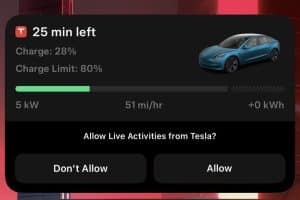Twitter has enacted a series of suspensions on several verified accounts after the people behind them, which included comedian Kathy Griffin, impersonated “Chief Twit” Elon Musk on the social media platform. In a later post, Musk stated that users who impersonate other handles on Twitter without clearly designating their account as “parody” will be permanently suspended without warning.
“Going forward, any Twitter handles engaging in impersonation without clearly specifying “parody” will be permanently suspended. Previously, we issued a warning before suspension, but now that we are rolling out widespread verification, there will be no warning. This will be clearly identified as a condition for signing up to Twitter Blue,” Musk wrote, later adding that “Any name change at all will cause temporary loss of verified checkmark.”
Prior to his updates, Musk became the target of several verified accounts that changed their account names and profile photos to match the Tesla CEO. Kathy Griffin, for example, posted tweets under Musk’s name promoting Democrat candidates for the upcoming elections. Ethan Klein of YouTube’s H3 Podcast channel did something similar, tweeting about the Tesla CEO’s alleged friendship with the late Jeffrey Epstein and his partner Ghislaine Maxwell. Klein did indicate his “parody” intentions on his profile’s banner but not on his name.
While Musk’s decision to suspend verified accounts that impersonated him resulted in much outcry against the Tesla CEO, it should be noted that Twitter’s rules on parody accounts have been set long before Musk’s buyout. As indicated in Twitter’s Help Center, users are free to operate a parody account, providing that such accounts indicate that they are a parody in both their account name and bio. This was not followed by the verified users who were suspended after impersonating Musk.
“The account name should clearly indicate that the account is not affiliated with the subject portrayed in the profile. Accounts can indicate this by incorporating words such as, but not limited to, ‘parody,’ ‘fake,’ ‘fan,’ or ‘commentary.’ This language should be stated in a way that can be understood by the intended audience.
“The bio should clearly state that the account is not affiliated with the subject portrayed in the profile. Non-affiliation can be indicated by incorporating words such as, but not limited to, ‘parody,’ ‘fake,’ ‘fan,’ or ‘commentary.’ This language should be stated in a way that can be understood by the intended audience,” Twitter’s rules read.





